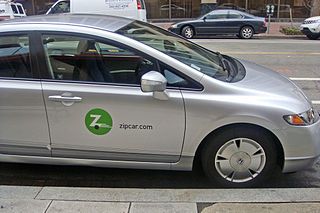What Does Avis’ Purchase of Zipcar Mean for the Car-Sharing Industry?
I’d like to think that Avis Rent A Car’s purchase of Zipcar for $500 million is good news for the car-sharing industry and the social phenomenon behind it. There is no question that car sharing is a terrific idea, in so many ways. It cuts transportation costs for its customers, it reduces the carbon footprint of manufacturing vehicles and keeping them on the road, it reduces congestion, and, best of all, it cuts VMT (vehicles miles traveled) and thus gasoline consumption.
In particular, it’s an important part of the huge paradigm shift I predict we’ll see in 21st Century transportation, where people are rethinking the concept of car ownership – something that was axiomatic a generation ago. Car-sharing is part of the trend to a “network” approach to mobility, in which, instead of mindlessly walking out to the driveway with the car keys, we think about our itinerary and make a customized selection, one that may include mass transit, ride-sharing, micro-rentals, small urban vehicles for commuting and package delivery, as well as walking or bicycling.
So what does the sale of Zipcar signify? It’s hard to say. My first reaction is that I hate to see something so much a part of the culture of young, hip, iconoclastic people owned by a group of “suits.” And Avis paid a 50% premium for the stock. How are they going to make this work financially? Cut costs (and services), damaging the brand? I sure hope not.


We’ll just have to wait and see how it works out.
From several standpoints, it makes little sense for millions of people to own cars that are sitting idle for most of the time. The opportunity costs are staggering. Whether a solution is found remains to be seen.
This is very encouraging. Here we have a very big rental company with the marketing and financial might to take car sharing into the main stream. I hope they do it right!